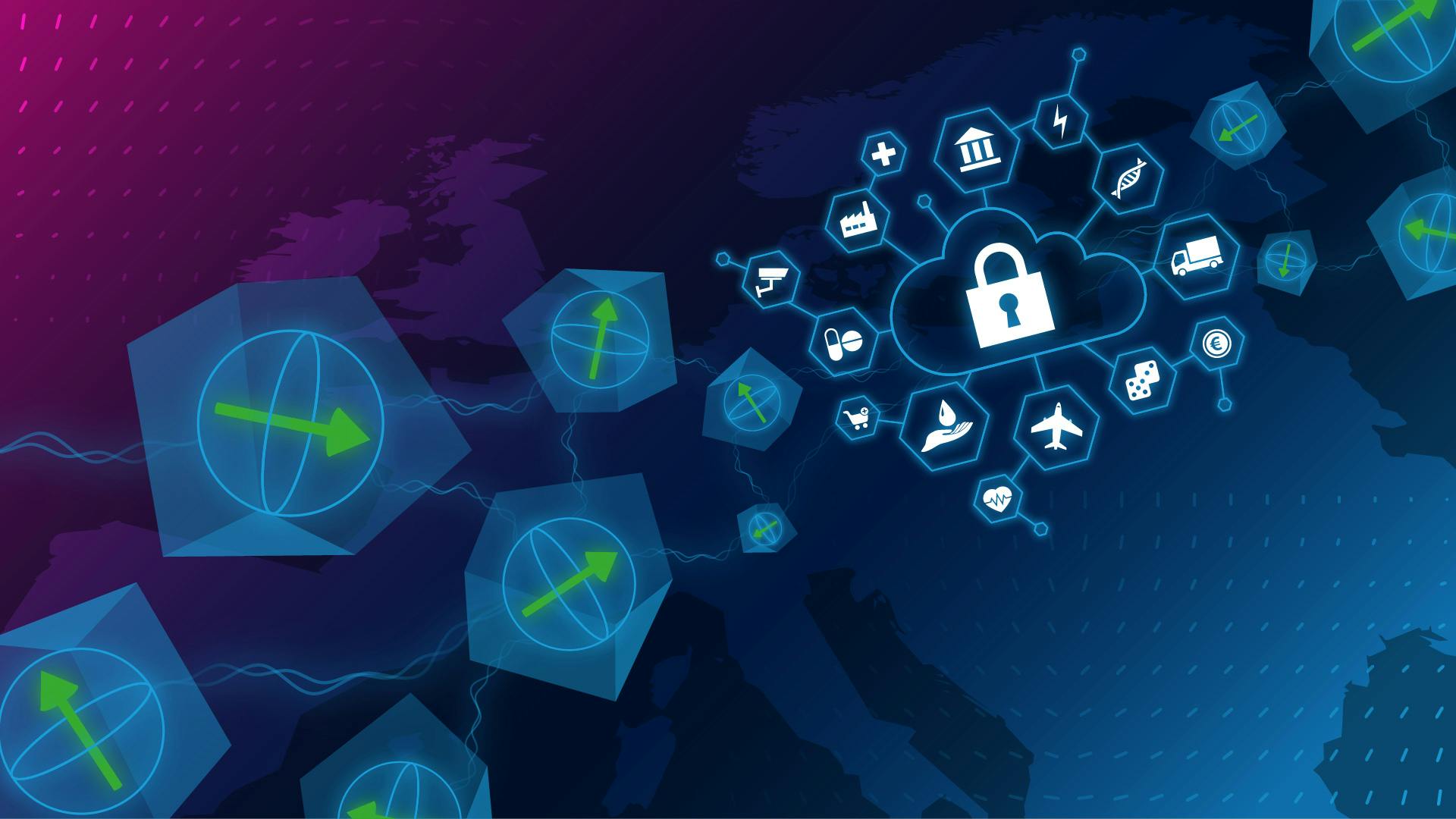A Quantum Cloud
Unleashing the full power of quantum computing
Cloud Computing
Cloud computing provides users with resources to perform computations and store data – using computers or servers that are in data centres, rather than locally on their own personal computers. Users don’t usually have physical access to these data centres. Instead, they use a network connection, namely the internet. A quantum cloud operates on the same principal, but gives access to quantum computers rather than ‘classical’ computers.
Blind Quantum Computing
Blind quantum computing gives users access to quantum computers over a quantum cloud. They can run quantum computations whose structure or algorithm remains hidden from the quantum computer. Simply put, the quantum computer is ‘blind’ to the users’ data and computations.
If users access the quantum cloud using a network with privacy-preserving features, thus combining quantum computing with quantum communication. Such anonymous quantum communication means that their data and quantum computations are fully ‘blind’. It means that a user’s data is essentially imperceptible to anyone else, including both other users on the network and the quantum computer itself.
The bright and dark sides of blind quantum computing
The complete security associated with blind quantum computing could be beneficial to governments and non-governmental organisations alike. It would protect sensitive data, and keep from being exposed highly sensitive problems that are being solved or computed. Unfortunately, there are also serious associated implications and potential threats. For instance, criminals and terrorists can use the ‘blind’ aspect together with the vast computational resources to develop new weaponry, hack into government data, or topple economies by breaking encryption.
A leap into quantum supremacy
Creating a quantum computer with many logical qubits is still a very challenging task, with enormous hurdles that are likely to require at least ten years to overcome. Creating quantum networks that link multiple smaller quantum computers, however, would enable a virtual large-scale quantum computer. This would potentially unlock the full potential of quantum computers. A large-scale quantum computer promises to deliver quantum supremacy, outperforming classical computers and solving problems that are intractable for them.
Distributed Quantum Computing
Distributed computing, as its name suggests, ‘distributes’ or spreads out a problem. Computations are divided into smaller tasks over multiple computers that operate as a single system. In a similar way, multiple remote quantum computers can be linked via a network to work together on solving a problem, following a distributed approach. This is distributed quantum computing, which would allow us to envision the full potential of quantum computing.
As with many other inventions and developments, it is difficult to predict all conceivable applications of quantum computers. Lasers offer a great analogy. Although they are very common light sources today, they did not replace the ordinary light bulb. Instead, lasers are used in applications ranging from eye surgery to laser printing – applications that were inconceivable to the inventors and early developers of lasers.
Besides the likelihood of being able to break encryption used on the current internet, thousands of other potential quantum computer applications are still unimaginable to us today. Some organizations are therefore providing public access to quantum computers over the internet, to explore novel applications based on how people use and interact with quantum computers.
Related publications
- Jiang, L., Taylor, J. M., Sørensen, A. S. & Lukin, M. D. Distributed quantum computation based on small quantum registers. Physical Review A 76, 062323 (2007). https://doi.org/10.1103/PhysRevA.76.062323
- Barz, S. et al. Demonstration of blind quantum computing. Science 335, 303–308 (2012). https://doi.org/10.1126/science.1214707

